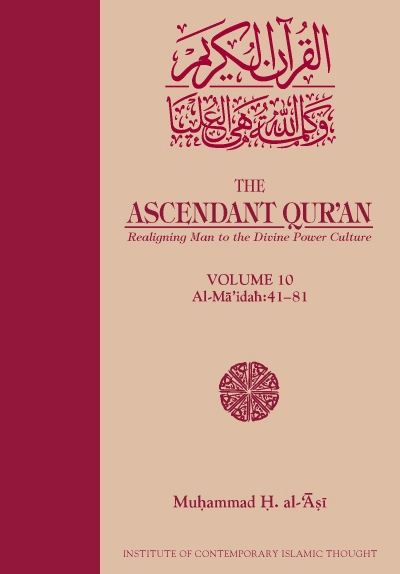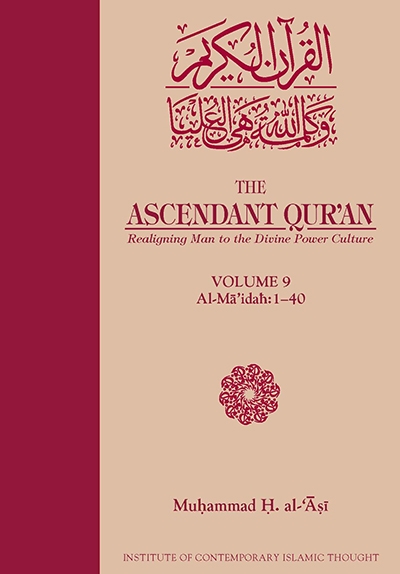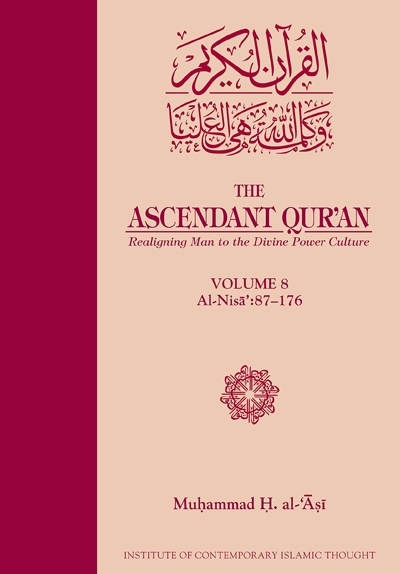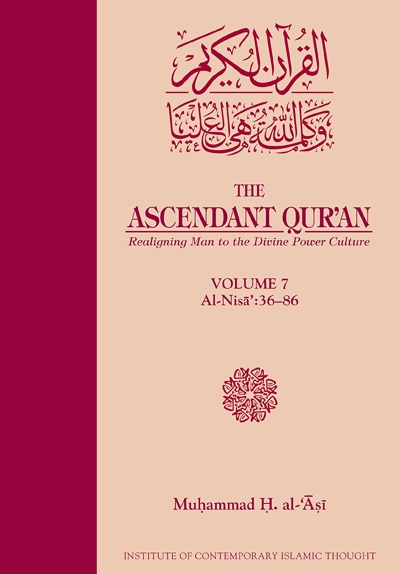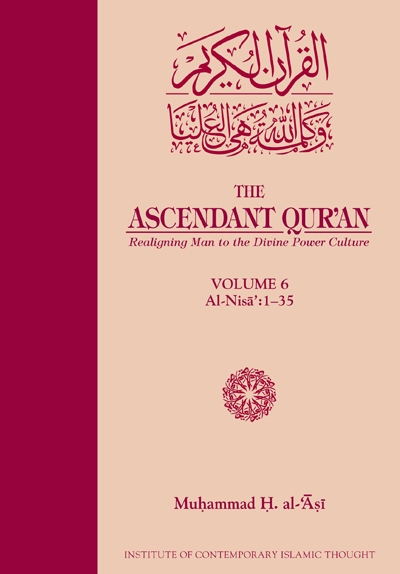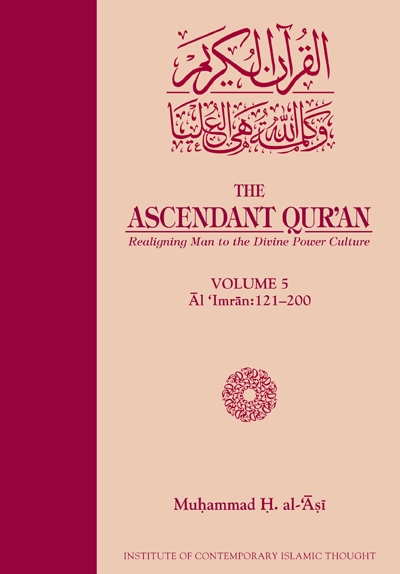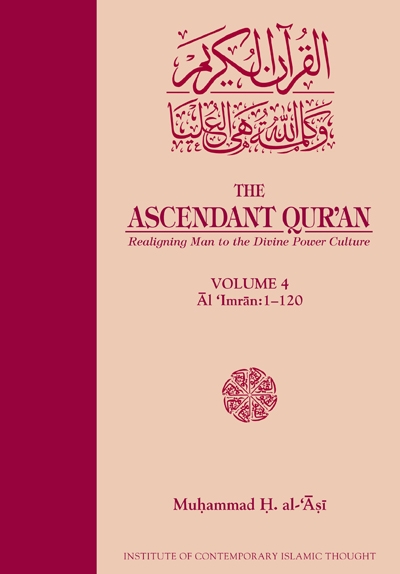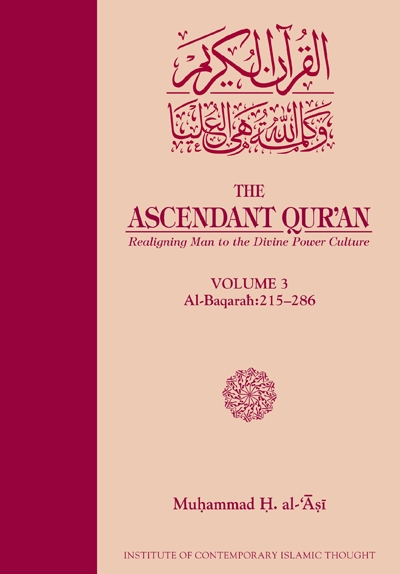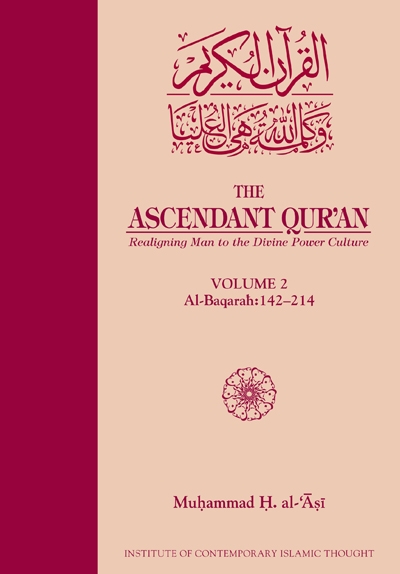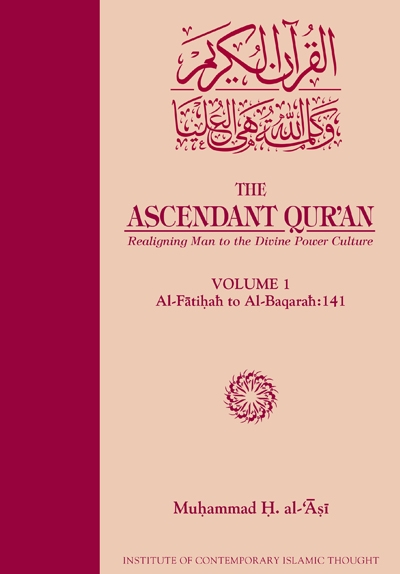The Ascendant Qur'an

The target market for The Ascendant Qur'an is emerging leaders. As we begin to put forth our rationalization for the above thesis, what we understand and what we mean by the term leadership should, at least, begin to clarify our position. Different people mean different things when the general domain of leadership is broached or entered. Hence, what we mean by it is germane to understanding our position on the market that will benefit most from this tafsir. This does not suggest that other views on leadership are wrong; it just says that in order for the reader to understand our position, he should first appraise our view on leadership, which acts as a foundation.
In our view, leadership roles and the demand for a leadership function has a context: constant change and societal flux motivates the need for something to be done, for people to do it, and for them to be held accountable for what they committed to do. And so leaders deal with this change or flux by having the clarity of knowing what to do, who is going to do it, and how the would-be doers are going to be held accountable for doing what they agreed to do. Leaders accomplish these three responsibilities by setting a directional course, by aligning people to that course, and by inspiring and motivating them, as a matter of culpability that comes with maturity, to fulfill their commitments.
Islamic leaders differ from other leaders in that they, uniquely, orient change in a direction that leads to Allah (SWT); that is, their alignment and accountability activities are based on and utilize Allah's (SWT) guiding principles as they are delineated in the Qur'anic precedent and the Prophetic model. With all the god-denying human theories, philosophies, and ideologies in vogue today, coupled with the sophisticated historical, institutional, and experiential forces sustaining them, choosing an Islamic directional course, relying "solely" on the Qur'an (or what some have said the Qur'an says) cannot be an easy task. Today the institutional force of a state instrument behind the Qur'an is weak; there are few academic institutions based on Qur'anic principles, and hence relying "only" on the Qur'an presents a challenging proposition. How do we think within this medium? What kind of activities can we structure on our new thinking? Who can guide us to change our thinking, in a way that is beneficial for not only us, but the world we live in? Is there a better way to manage the quiet desperation that afflicts the majority of the world's people? Can we do a better job than the self-proclaimed managers of today?
The Ascendant Qur'an begins to fill this void. It demonstrates that the Qur'an is bigger, more sound, and bereft of all those faults and pitfalls inundating the entire compendium and evolution of human experience, knowledge, and culture about human nature and human behavior. It gives the Muslim confidence that Allah (SWT) is greater, that Islam is the direction, and that the Prophet (SAW) is central to the way things ought to be. But it could be said that other tafsirs do this as well; in fact, this ought to be the goal of tafsir literature. So what makes The Ascendant Qur'an distinctive?
A useful directional course, which tackles the problem of clarifying what has to be done, creates a sense of urgency, paints a vision of what human effort will achieve by overturning the existing unacceptable situation, and delineates how the needs of important constituencies are going to be satisfied. The Ascendant Qur'an creates this sense of urgency; it shows the Muslim how injustice dressed up by the rubric of welfare and human rights has driven oppression into all aspects of human life and engagement; it exposes the double standards crafted by the class of wealth and power to apply to the class of dearth and cower. And by showing the Muslim the hollowness of the existing power culture, it motivates him to understand that his continued absence from the social domain, especially that of decision making, will only serve to exacerbate the oppression experienced by him, his brothers, and the general lot of humanity. In this way, The Ascendant Qur'an demands for the Muslim to do something - but not just anything. Precisely, it demands that he do what the Prophet (SWT) did.
And, it is in this area that this tafsir differs from its antecedents. It tries to tackle the difficult subject of power; and what its exercise has to do with social justice, and what its abuse has to with the institutionalization of kufr through the agency of shirk. Truth without power leads to injustice, followed by oppression. Social justice, social values, and even social consciousness exist because of the principled exercise of power. No theory combined with experience demonstrates the principled exercise of power like the Qur'an and the Sunnah - either there are theories without a sunnah, or there is an age-old practice that bears little attachment to principle. Through the medium of the disciplined and ethical exercise of power, the Muslim is capable of visualizing a functioning Islamic society in all its major dimensions: from the personal to the social space, from the family to the socio-economic domain, from the spiritual to the political to the geo-strategic. The Ascendant Qur'an provides the kind of explanation that places authority and its attendant power in the correct frame of reference, thereby impelling the reader to imagine what kind of society would result with this as its principal bedrock constituent.
But power, especially temporal power, does not exist in a vacuum. Power is exercised - either properly or improperly - by people. And more particularly, by leaders. The Qur'an teaches the Muslims how to exercise power without being misled by its allure; the Muslims in turn are the leaders of humanity - they, as the Ummah, have been given this responsibility by Allah (SWT); and finally al-ladhina amanu are the ones who lead the Ummah. The Ascendant Qur'an consistently brings out this central thematic element of the Qur'an, as no other previous tafsir has done. It addresses what leaders need to do, or what those who have the capacity the shape the behavior of others have to do, whether such a one defines a country that leads other countries, or such a one refers to he who resuscitates the Islamic executive authority (or at least contributes to it). No feature of human society can impact the expansion and adjudication of social justice more than the principled exercise of power by just leaders. So far, we are not aware of significant Islamic publications that, in a structured way, address the needs of the one guiding constituency in society: those who lead - so that they in turn can address the needs of those who cannot represent themselves (the mustad'afin, the oppressed). And so with this argument, we feel that the initial and most important market segment for this tafsir is that of the emerging or developing leader.
